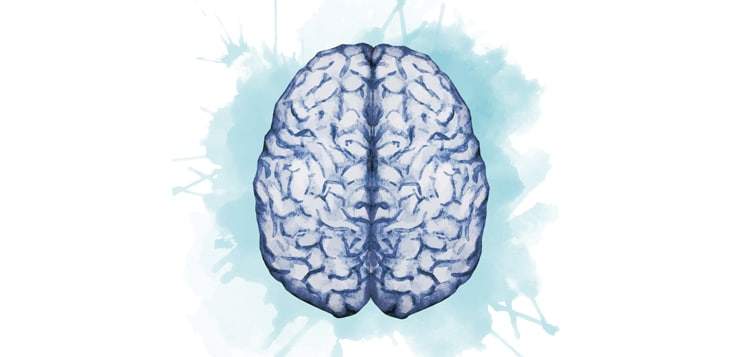A growing body of research suggests meditation can positively impact our health and wellbeing. But are all forms of mindfulness practice equally beneficial? In groundbreaking research, a team of scientists at the Max Planck Institute in Germany reveal that mental training geared toward attention, compassion, or perspective taking each affect the brain, body and behavior in different ways.
The terms “mindfulness” and “meditation” are often used interchangeably, but different practices are known to emphasize cultivating unique abilities such as attention, compassion, and social skills. To date, research has yet to show whether changes in brain structure, stress physiology, attention and social behavior vary by the type of mindfulness training received.
To answer this question, a team of researchers embarked on a large-scale study of the effects of 3-months of different types of mindfulness training. Each of the training types emphasized a different skill: attention (Presence), compassion (Affect), and social intelligence (Perspective). Each training began with a 3-day intensive retreat, followed by weekly group instruction, and daily home practice that was supported by a custom-made online platform and smartphone apps.
A total of 322 healthy adults (197 women) between the ages of 20 and 55 years were recruited and assigned to participate in 1 of 4 groups. Group 1 and 2 participants began with Presence training. Group 1 then received Affect and Perspective instruction. Group 2 received identical training in the reverse order. Group 3 underwent only 3 months of Affect training, and group 4 received no instruction. Participants from all groups all underwent fMRI brain imaging, and completed tests of attention and social function at the end of each training.
Presence, Affect, and Perspective: Three skills emphasized in various mindful practices
- Presence instruction emphasized attention and introspective awareness. Core practices included breathing meditation and body scan exercises, as well as walking meditation, and practices designed to heighten attentiveness to vision, sound, or taste.
- Affect training focused on loving-kindness meditation, and dyadic interaction. Loving kindness practices involved fostering loving feelings toward a benefactor, self, and others, and using phrases such as “May you be healthy,” “May you be safe,” and “May you live with ease.” Pairs of participants also performed face-to-face, in-person, and video-supported exercises during which they examined difficult situations, and practiced acceptance, compassion, and empathic listening.
- Perspective training accentuated observing one’s thoughts during meditation, and engaging in perspective taking with another person. Observation practices entailed labeling mental events such as thinking, and judging, categorizing thoughts into opposing domains (e.g. self/other, positive/negative), and monitoring the comings and goings of thoughts. Pairs of participants also performed exercises where they were asked to view an experience from the perspective of another person, and to reflect on how their thoughts differed from others.
Results from brain imaging confirmed that changes in brain structure were directly related to the form of mental training practiced. Immediately following 3 months of Presence training (breathing practices and body scans, etc), participants showed significantly greater thickness in the anterior prefrontal cortex and anterior cingulate cortex, both of which are associated with attention and executive function. Performance on computer-based tasks that measure attention and executive function also increased. Notably, changes in social domains such as compassion and perspective-taking were not detected following Presence training.
Affect and Perspective instruction both focused on social behaviors, the first targeting emotion, and the second social cognition. Immediately following Affect training (loving-kindness, dyadic interaction), participants showed significant changes in cortical thickness from the brain’s right insula to the temporal pole; regions previously linked with empathy, compassion and emotion regulation. These changes correlated with participant’s enhanced compassion ratings.
Results of this study indicate that the type of mindfulness instruction may matter.
Following the Perspective instruction (observing one’s thoughts, perspective taking with others), adults showed significantly increased cortical thickness in the brain’s left parietal regions, which are associated with perspective taking and Theory of Mind. Theory of Mind refers to a person’s ability to differentiate between his or her beliefs and those of others, and to appreciate that others may hold a different perspective. Brain changes at the end of the Perspective instruction were related to better performance on tasks measuring perspective taking.
The relationship between the form of training and physiological and psychological stress also differed by practice type. Only the practices that focused on social competencies (Affect and Perspective) were linked to significant decreases in the release of the stress hormone, cortisol. This suggests that the daily discussion of an individual’s personal experience, even with a stranger, when met with empathic understanding and non-judgment, may be linked to a significant drop on physiological stress. Nevertheless, participants reported feeling less stressed after all 3 of the instruction types regardless of the order in which they were experienced.
Results of this study indicate that the type of mindfulness instruction may matter. Similar to findings from other disciplines suggesting that social, cognitive, or behavioral skills are not interchangeable, results of this study propose that distinct forms of mindfulness practice may have very different effects. Meditation may not, then, be a one-size-fits-all proposition.
These findings are groundbreaking in that they point to a biological basis for how capacities such as compassion, perspective taking, and other forms of social-emotional intelligence may be developed. Although this study was conducted with healthy adults, this opens up the possibility that specific forms of practice may be better suited to cultivating specific competencies, rather than assuming that forms of meditation and mental training have identical effects.






